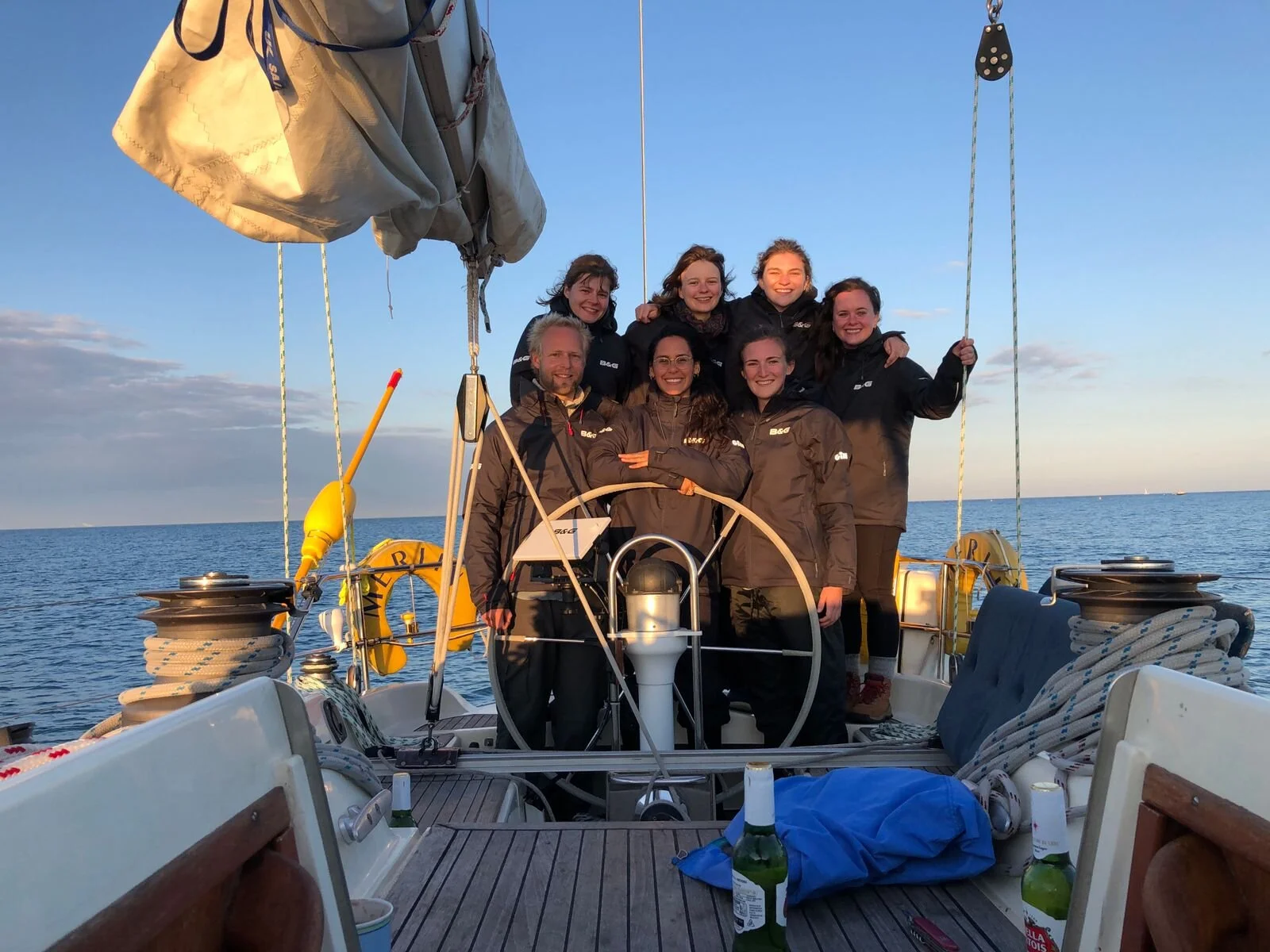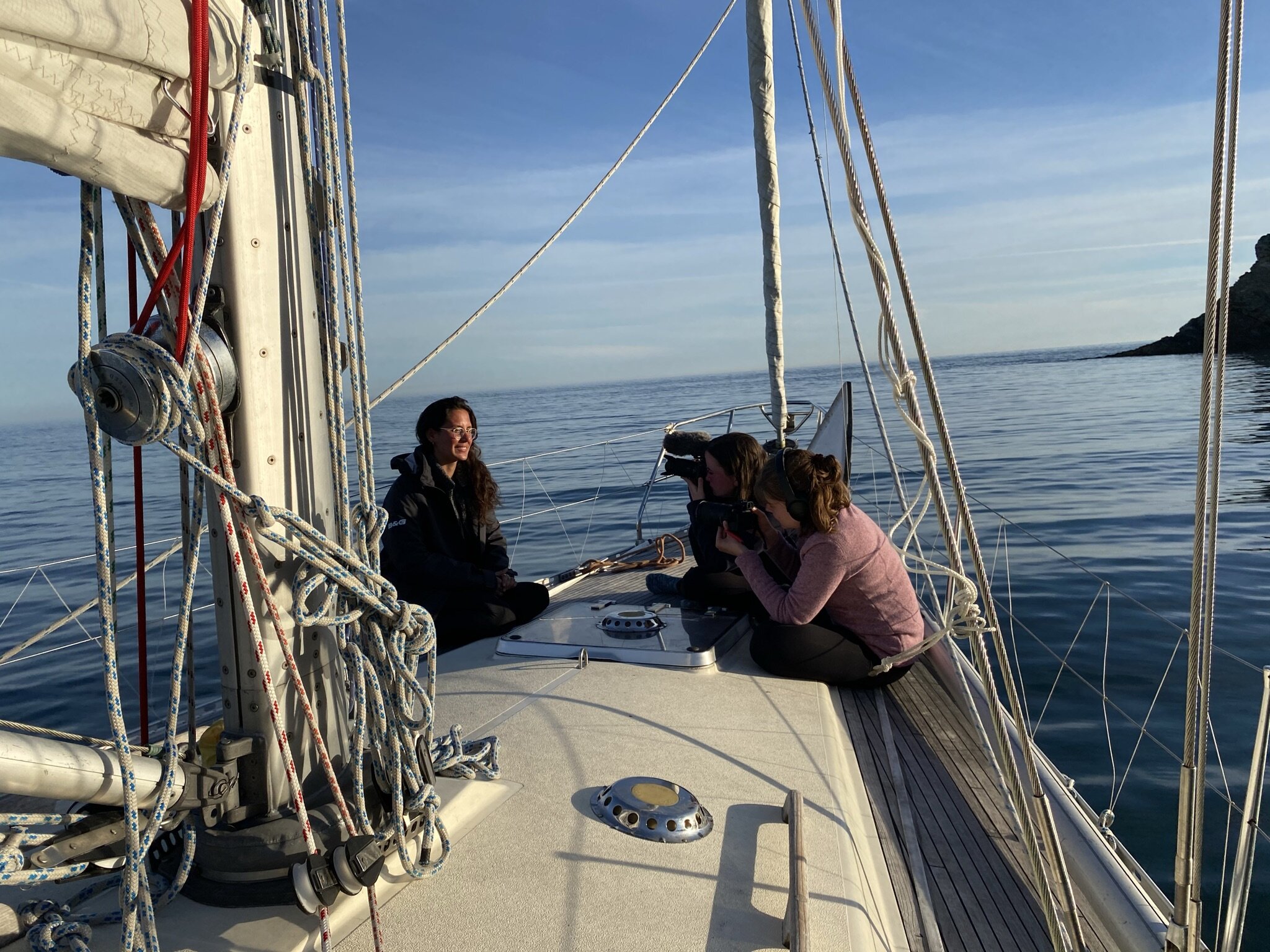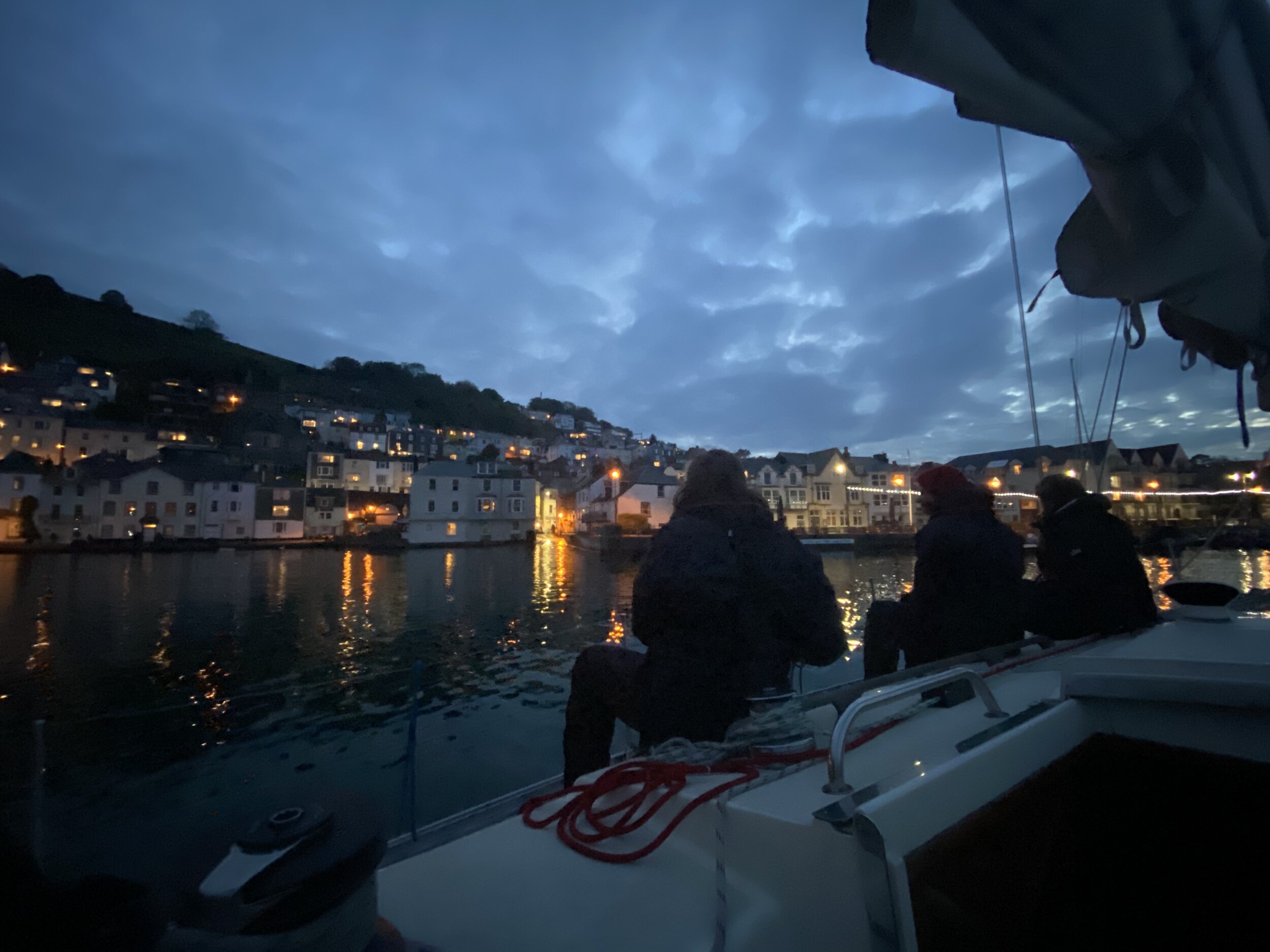At the end of May 2021, as the U.K. emerged from months of lockdown, six master’s students at the Oxford School of Geography and the Environment embarked on a two week-long sailing expedition along the southwestern coast of the U.K with Ocean Ambassador & Sail Britain Skipper Oliver Beardon aboard Merlin a Sigma 41 offshore cruiser racer.
Arzu Askin, Andrea Vale, Louise de la Rubia, Michelle Sanders, Sarah Seaberg, Steph Barker alongside skipper Oliver Beardon
The objective of the expedition was to take our learning outside of the ‘virtual classroom’ in order to understand how social science disciplines can shed valuable light on marine issues. Today, these include global problems like noise and plastic pollution, overfishing, loss of native species, ocean acidification, and ecosystem damage.
By exploring the coastline from Southampton to Falmouth, we hoped to highlight how global marine issues are affecting the U.K.’s local shores and to show how human and ocean systems are deeply interconnected — for better and for worse.
‘Anthroposea’ means human ocean — a call to address the social side of ocean issues. The emerging disciplines of the marine social sciences encompassing law, geography, anthropology, and economics, among others, can be put to work to help resolve the pressing ocean challenges of our age. Examining the social side of ocean issues allows us to recognize how we govern the sea, how we economically utilise the sea, the history we have with it, and how we relate to it socially, culturally, and emotionally. By taking social scientists into the field through sailing, we hoped to showcase the vital importance of the social sciences to marine issues, and call for more social scientists to consider careers that encompass the human side of the ocean.
Sail Britian’s Oliver Beardon says
'Anthroposea is supported by Sail Britain with whom the team shares an ethos of widening marine study and discourse, and inspiring positive change for the ocean. Learning to sail was a key element of bringing the team together, both with each other and in developing a close personal connection with the natural world.'
All of us were craving in-person experience.
Being able to spend two weeks at sea in close quarters was a welcome opportunity after a tumultuous year spent pursuing master’s degrees through the COVID-19 pandemic.
After months of online classes and desk-based dissertation research, all of us were craving in-person experience. Furthermore, after spending a year reading and discussing marine and conservation issues in an academic setting, all of us felt a familiar sense of urgency and impatience: the need to not just talk about ocean questions, but to go out into the field and explore them for ourselves, hands-on.
The Anthroposea Expedition was invaluable in introducing us to the real faces and grassroots stories that comprise ocean issues today. We were able to speak with Chris in Falmouth and see his oyster restoration lab; to listen to local townspeople on the Isle of Wight describe how the sea has shaped their lives; to pull up seaweed from the ship’s anchor chain, cook and eat it ourselves; and to watch debris float by us in even the most remote areas we sailed. All of these experiences gave a real-world dimension to the theories and statistics we’ve studied, and imparted on us a vital truth to always remember: when examining the ocean, it is never enough to study theory at a desk. Whenever possible, we should always strive to see the waves roll and touch the salty water ourselves.
The Oxford team is made up of: Arzu Askin, Andrea Vale, Louise de la Rubia, Michelle Sanders, Sarah Seaberg, Steph Barker
For further details or to find out how to charter an expedition with Sail Britain please visit the website www.sailbritain.org
Blog post and photos supplied and written collectively by ~ Arzu Askin, Andrea Vale, Louise de la Rubia, Michelle Sanders, Sarah Seaberg, Steph Barker





